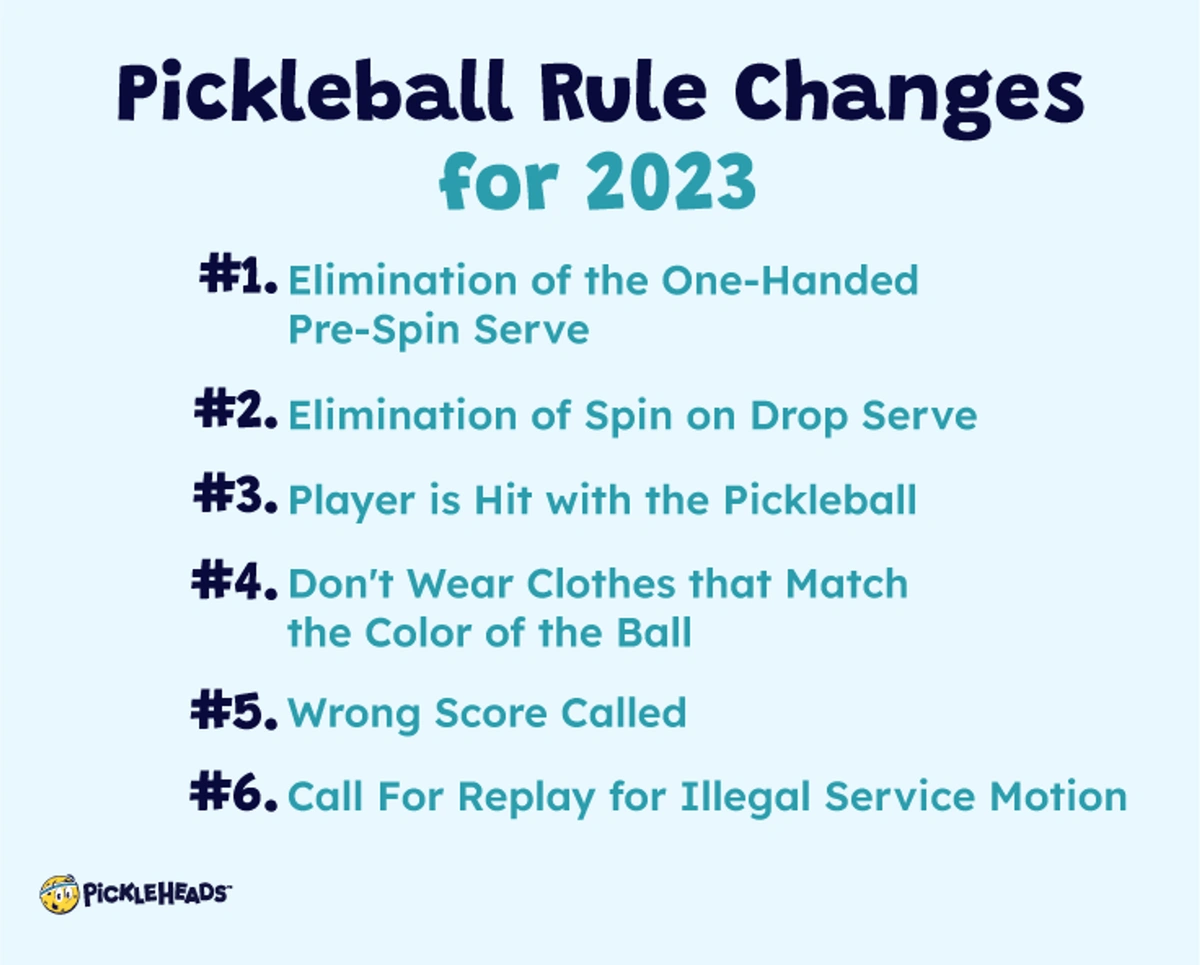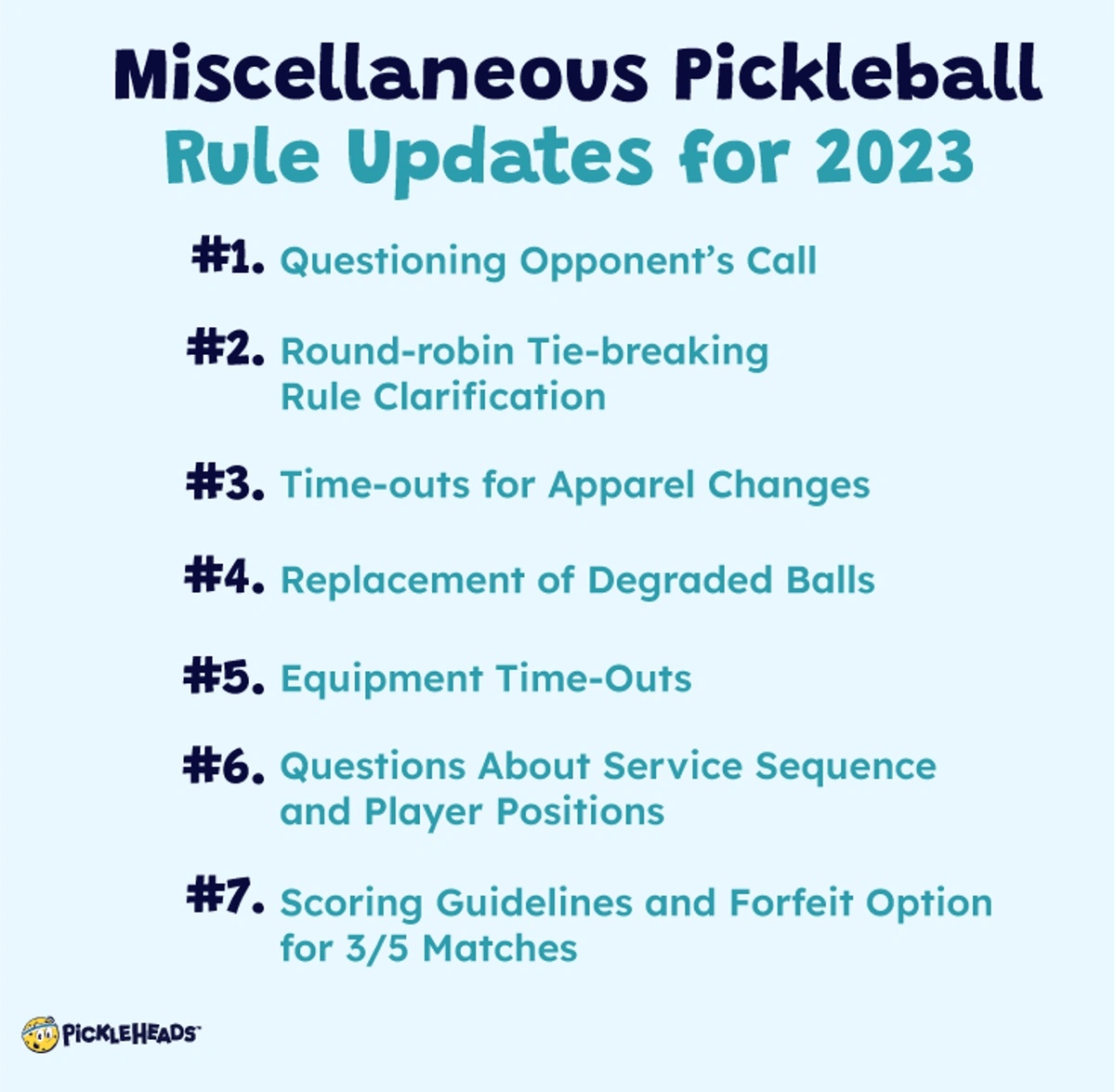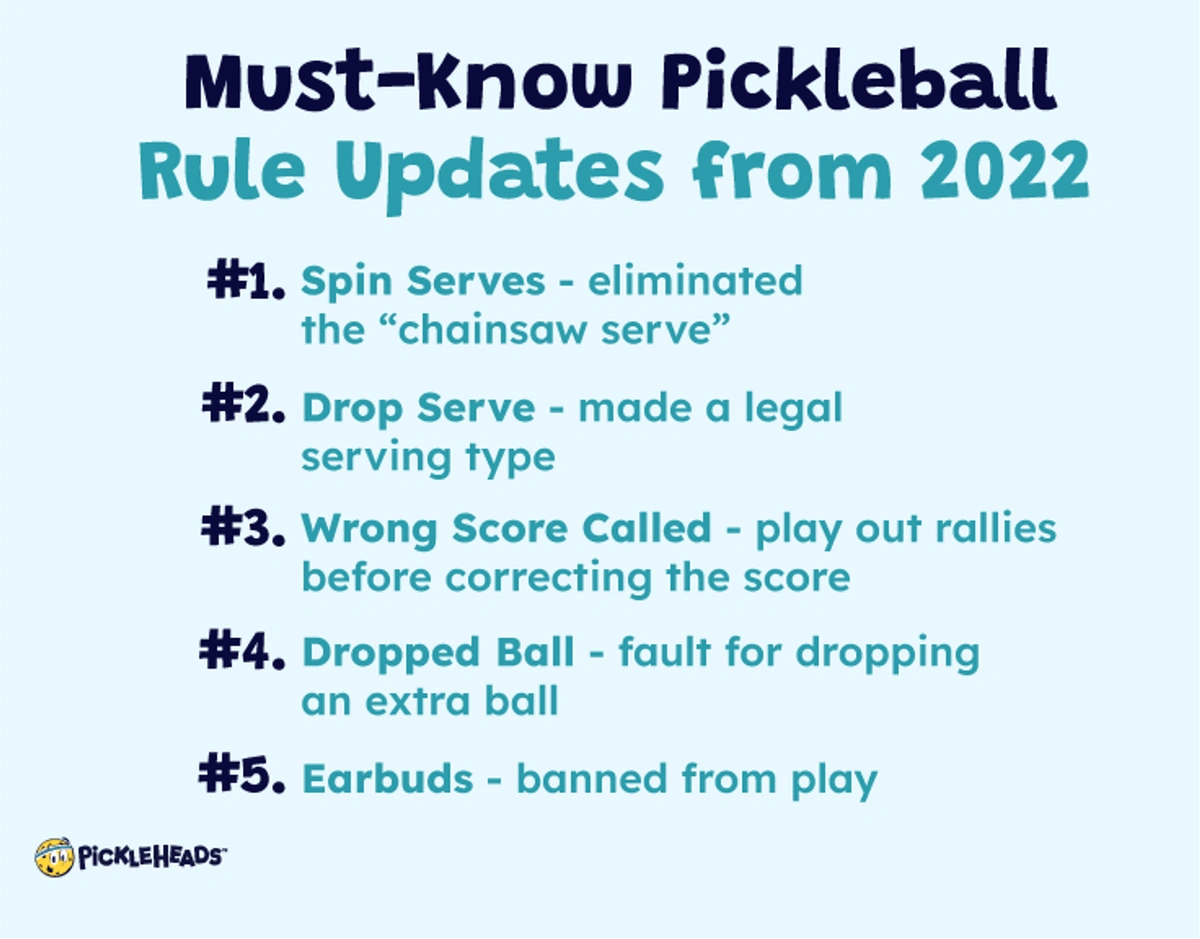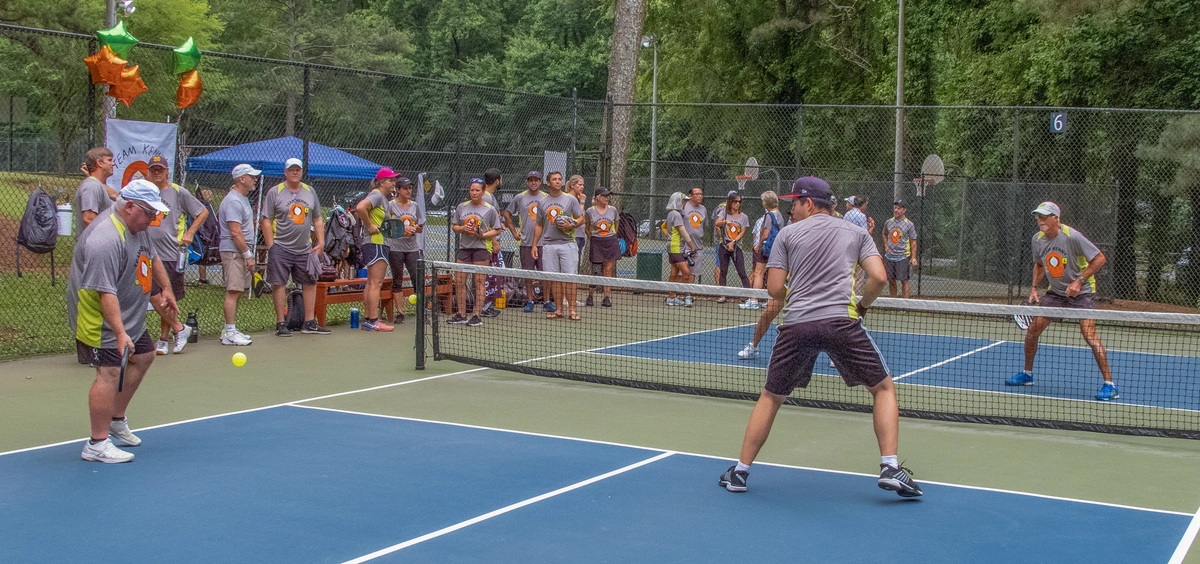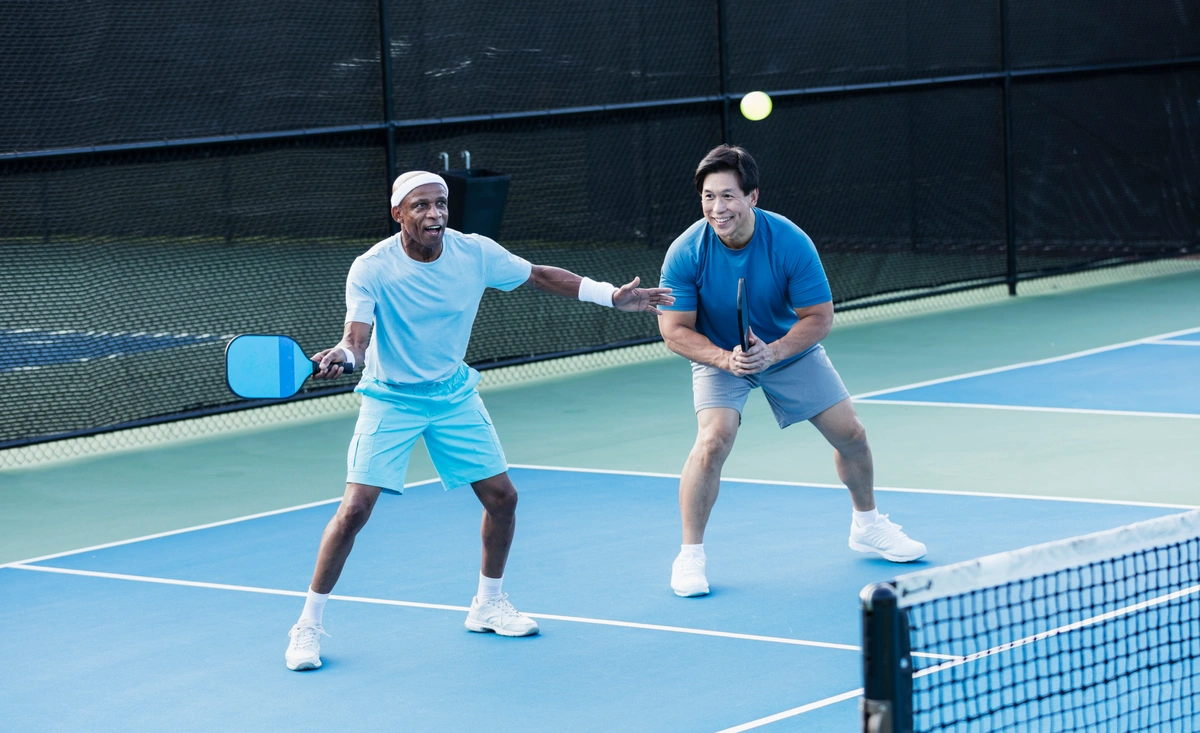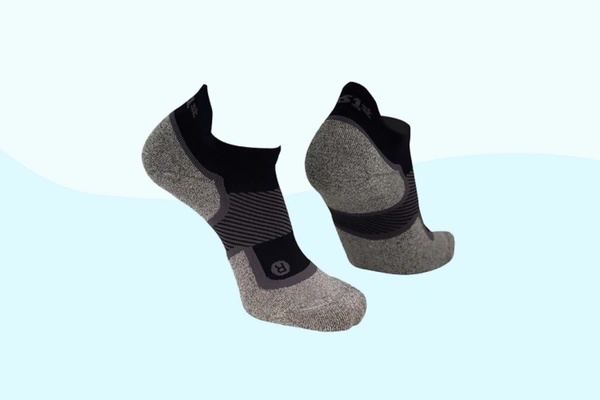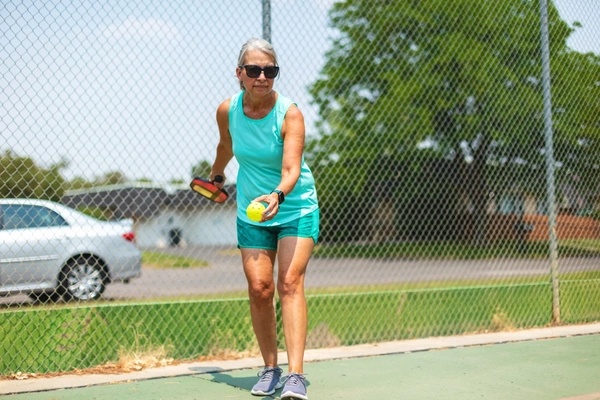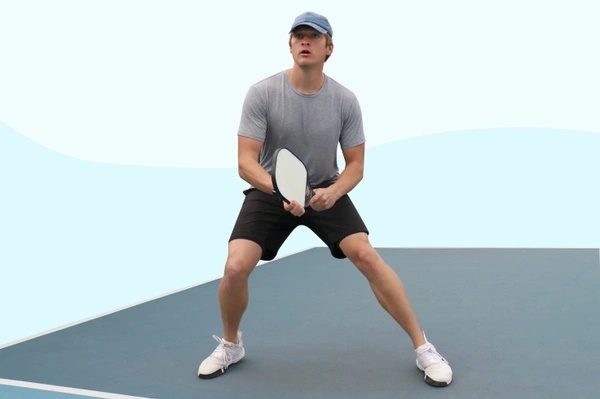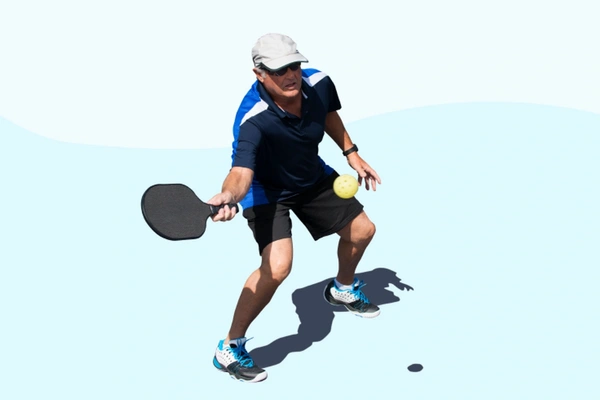
It’s easy to learn to play pickleball. But, any game with depth will undergo new rule changes from time to time. Pickleball is a rapidly growing sport, and it’s still relatively new. That’s part of what makes the pickleball community so thrilling - we’re on the cutting edge of an ever-evolving sport.
What are the biggest pickleball rule changes for 2023? And, why were they made?
Looking back, what major pickleball rules changes were made in 2021, and how did they affect the game in 2022?
Today, we’ll dive into the upcoming year’s biggest rule changes. We’ll also explain how rule changes happen in pickleball between last year and this year.
We’ll also make a few predictions about how the game might change as we head into the new year.
How are Rule Changes Made for Pickleball?
Who Makes up the USA Pickleball Rules Committee?
The rule change process for pickleball is very open and community-oriented. But the final word on official rules comes from the USA Pickleball Rules Committee.
The USA Pickleball Rules Committee is a body within USA Pickleball, and USAPA ultimately decides who to put on the Rules Committee. Nominations are currently made by existing Rules Committee members, the National Certified Referee Evaluator Committee (NCREC), and USA Pickleball Regional Directors. Nominees are then interviewed by a panel from the same group.
How Are Rule Changes Submitted in Pickleball?
One of the great things about pickleball is that rule changes begin with suggestions from players in the pickleball community.
New pickleball rules begin with USA Pickleball members, who can submit proposed rule changes on the USA Pickleball website. (For reference, for 2023 there were 78 suggested USA Pickleball rule change submissions.)
How Are Rule Changes Evaluated and Reviewed in Pickleball?
After suggested rule changes are listed on the USA Pickleball website, there’s a period where the public can submit comments.
At the end of the comment period, the USA Pickleball Rules Committee reviews these new pickleball rule suggestions. At this point, proposed changes are either approved to continue in the process, rejected, or revised.
The final word rests with the USA Pickleball Board of Directors, who take a simple up-or-down vote on each proposed rule change.
Pickleball Rule Changes for 2023
Elimination of One-Handed Pre-Spin Serve
Far and away, the most notable and controversial change for 2023 is the elimination of the one-handed spin (pre-spin) serve. You may have heard about the new 2023 pickleball spin serve rule, but may not know the details.
Spin serves are often challenging for amateur players. In pickleball, these serves are not banned in 2023, but putting pre-spin on the ball with your fingers is.
This is referred to as a “pre-spun spin serve,” or a “snap serve.” You can still apply spin to your serve. But you have to do it with your paddle, not with your hand or the playing surface.
Elimination of Spin on Drop Serve
In keeping with the logic of the pre-spun spin serve ban, pickleball players also can’t put pre-spin on a drop serve.
The pre-2023 rule, as it was written, left some ambiguity about whether or not players could apply manual spin on the ball when performing a drop serve, though most players agreed that you couldn’t.
A drop serve is when the server drops the ball, then hits the ball on the bounce. There are three rules to keep in mind when making a drop serve:
- The server can’t put momentum on the ball (i.e. throwing it down as opposed to simply dropping it.
- The server can’t spin the ball with their hand.
- The server’s paddle needs to be below waist-level when it makes contact with the ball.
Player is Hit with the Pickleball
In pickleball, when a player is hit by the ball, that’s a fault on the player who is hit. That was already the case. But before 2023, the wording was widely considered a little confusing. Rules 7.H and 7.I in the official rules are now clearer.
Avoid Wearing Clothing that Match the Color of the Ball
Another new pickleball rule for 2023 is that players aren’t allowed to wear clothing colors that match the color of the ball. Doing this makes it hard for other players to see the ball. Similar rules exist in some competitive settings for tennis and table tennis.
The reasoning here is simple. Players should score points because they outplay their opponents, not because their opponents can’t see the ball clearly.
Wrong Score Called
In pickleball, players have to announce the score before serving. Before 2023, if the server called the wrong score, players were supposed to wait until the end of the rally before calling for a correction.
Beginning in 2023, players can stop playing immediately to request a score correction if they believe the server has gotten it wrong.
Be careful, though! If you stop playing for a score correction, and it turns out that the server was actually correct, you’ll receive a fault.
Call For Replay for Illegal Service Motion
In officiated sport of pickleball, if a referee sees a possible illegal service motion but they’re not sure, they may call for a replay. It’s their choice whether they do or not.
As always, if the referee spots a serve that they’re sure is illegal, they will call a fault. Please note that the referee and the receivers should be able to clearly see the server's release of the ball.
Rally Scoring Option for Singles & Doubles – Failed
Under current pickleball rules, players can only serve on rallies where they are the server. This is sometimes referred to as “traditional scoring” or “side-out scoring.”
However, there’s also an alternative scoring method called “rally scoring.” In rally scoring, a point is scored on every rally, no matter who serves.
Some players use rally scoring in their own casual games. Games that use rally scoring are usually shorter. They’re usually played to 15 or 21 points instead of the traditional 11.
A hotly debated rule change proposal for 2023 was to officially switch pickleball over to rally scoring.
The proposal failed. However, the conversation in the community isn’t over. USA Pickleball is forming a task force in 2023 to explore how implementing rally scoring might work and how it might affect the future of the game.
Other Miscellaneous Pickleball Rule Updates for 2023
Wording Changes
Questioning Opponent’s Call
When a player makes a call (like calling a ball out of bounds), it was previously against the rules for the opposing player to “question an opponent’s call.” (Rule 6.D.5) Some players took this rule literally and interpreted it as allowing comments, but not questions.
The new version of this rule for 2023 simply adds a few words to clarify: “6.D.5. A player should not question nor comment on an opponent’s call, although any player may appeal a call to the referee before the next serve occurs.”
Round-robin Tie-breaking Rule Clarification
In round-robin tournaments, there has been some confusion surrounding how ties should be broken, especially when there are three or more teams tied. The 2023 edit to Rule 12.C.3 adds some specific phrasing for clarity.
Time-outs for Apparel Changes
In pickleball tournaments, the Tournament Director has the authority to require players to change their apparel if it’s problematic, such as if a player’s clothing is too similar to the color of the ball.
The 2023 version of Rule 2.G.4 clarifies that the time-out for an apparel change will be a “non-chargeable time-out,” so it won’t count against the team’s allotted time-outs.
Replacement of Degraded Balls
Rule 11.E allows players to replace the ball in the event that it has degraded. Prior to 2023, the rule’s wording only referred to changing out the ball if it became “cracked or broken.”
The new version of the rule instead reads “degraded, soft, broken, or cracked.” A common problem in hotter climates is that the ball becomes soft from the heat. This causes it to lose a lot of its bounce and playability.
This rule change addresses that issue and allows for more flexibility in general in regards to when players and officials can replace the ball.
Equipment Time-Outs
If players have an equipment issue like a broken paddle, pickleball rules now allow for an equipment time-out that does not count as one of their charged time out periods. The rule states that an equipment time-out should last a “reasonable duration” of time.
In officiated games, referees will determine what a “reasonable duration” entails. In non-refereed tournaments, players will work out a length of time everyone can agree on.
Questions About Service Sequence and Player Positions
Rule 4.B.8 allows players to ask either the referee or their opponent (in non-officiated matches) the score, if they’re in the correct position, and whether or not the correct doubles partner is serving. Players are also allowed to simply ask a generic question, like “Am I good?” and that will be understood to cover everything.
The new wording of the rule also clarifies that players can stop play without penalty if they identify a server order or player positioning error.
Scoring Guidelines and Forfeit Option for 3/5 matches
Rule 12.F.6.a lays out how scores are supposed to be reported in tournaments. The previous rule laid out guidelines for best 2-out-of-3 matches, as well as 15/21 point matches, but it did not reference best 3-out-of-5 matches. The 2023 new pickleball rule change simply adds 3/5 matches to the rule’s wording.
The Must-Know Pickleball Rule Updates from 2022
While we’re digging into rules changes, let’s review some important pickleball editorial changes from 2022 that are still affecting players today.
Spin Serves
The big 2023 pickleball spin serve rule change isn’t the first time the spin serve rules have changed. In 2022, the updated rule dictated that only “one hand at a time” could contact the ball before it was hit.
This eliminated the chainsaw serve, where a player spins the ball off of the paddle before serving. This applies to the drop serve and the volley serve.
It also made the “COVID serve” illegal. The “COVID serve” is the nickname for a move in which the server places the ball on their paddle, flips the ball up into the air, then hits it.
Drop Serve
In 2022, the drop serve officially became a permanent legal serving option. When performing a drop serve, the server drops the ball, then hits it on the bounce.
Wrong Score Called
Beginning in 2022, if players stopped a rally because they believed the server announced the score incorrectly, they would receive a fault. Instead, after the play began, players were instructed to play out the rally, then make the correction before the next serve.
Note: This rule was updated in 2023, as mentioned above. Players can now stop play to draw attention to an incorrect score as long as they do it before the return of serve.
Dropped Ball
In matches with no referees, players sometimes carry extra balls. If they’re carrying an extra ball, it must not be visible to the opponent. If a player drops an extra ball during play, it will result in a fault.
Earbuds
Earbuds and headphones were banned in pickleball in 2022 per Rule 11.P. This rule does not apply to medically prescribed hearing devices like hearing aids.
Additional Miscellaneous Rules of Pickleball Updates from 2022:
Medical Time-Outs
If a referee determines that there’s a player health issue and that medical staff or the Tournament Director should be called in, that’s a medical time-out. That’s a “non-chargeable” time-out, meaning it won’t count against the player’s own allotted time-outs.
Verbal Warnings
Before 2022, referees could issue verbal warnings for profanity. As of 2022, referees were also granted the ability to issue verbal warnings for any situation that could result in a Technical Warning.
Note: Referees can only give one verbal warning per match to a team or singles player, no matter what it’s for.
Calling the Score After a 15-Second Warning
After a referee issues a verbal warning or a technical foul, the referee calls a 15-second warning for the players to get ready. In 2022, the rule was loosened so that the referee could instead call “time-in” when the players are ready. USAP stated that the intent was to lessen the “rigidity” of the original rule and to give referees more control over the flow of the game.
Technical Warnings and Fouls
Before 2022, it was why referees should give Technical Warnings or Technical Fouls, but not always clear when they should be announced. The 2022 revision to Rule 13.G.3.e clarified that the referee should not stop a rally to call a foul. Instead, they should wait until the end of the rally to call the foul.
Tournament Score for a Retirement
When a player or team “retires” from a match in a tournament, it used to be that their score would be recorded as “0-0.” In 2022, Rule 12.F.G.a was revised to allow their actual score to be recorded. Those points can become relevant for both teams later in the tournament, since they’re sometimes figured into how tie-breakers are counted. Teams that retire from a match can still go on to play additional matches in their bracket.
Photo by Stephen Rahn on Flickr, marked as Public Domain (CC0 1.0)
Why Did the USAP Rules Committee Change the Rules?
Pickleball is a growing and evolving sport. And pickleball rules are always being refined and improved.
In pickleball, rule change suggestions first come from the players. Only after the community has had a chance to discuss rule changes do they move on to the USA Pickleball Rules Committee. As such, pickleball rule changes are usually addressing issues players are having out on the pickleball court or in tournaments.
What Is the Impact of the Rule Changes in Pickleball?
The Impact of the Rule Changes in 2022
The pickleball rule changes that took place in 2022 primarily changed the way serves were handled. Making the drop serve an official option and banning serves like the “chainsaw serve” had an immediate impact on players who utilized those techniques (or disliked playing against them.)
Apart from rule changes impacting serving techniques, the smaller changes about interrupting rallies, changing when fouls are called, etc. had the effect of streamlining the overall pace of the game, especially in tournament play.
The Possible Impact of the Rule Changes in 2023
In 2023, the largest impact from pickleball’s rule changes will come from the new spin serve rules. The banning of the pre-spun spin serve should allow newer players and more experienced players to have better games together.
With this change, USA Pickleball has made clear that it believes that points should ideally be scored on the rally, not on the serve.
In terms of long-term impact on the game, the rally scoring rule proposal may end up being important. Even though the rally scoring proposal failed, it generated a ton of discussion. As we mentioned above, it also resulted in the USAP forming an exploratory committee to look into rally scoring.
Notable Rejected Rules of 2023
The most notable rejected rule pickleball rule change for 2023 is the aforementioned proposal to include rally scoring as an official scoring method. The debate isn’t over, however! USA Pickleball stated that it’s “not ready” to incorporate rally scoring but didn’t reject the idea outright.
In fact, in 2023 an exploratory committee will investigate how a rally scoring rule might affect the game and how it might be best implemented.
There were other failed rule changes for 2023 that made it to the voting stage, but they weren’t as substantial. One suggested a wording change to Rule 4.A.2, which states that players should serve to the service court diagonally opposite them.
The suggested change would incorporate extra language saying that this rule does not apply to “Mini-Singles.” It’s a variation on traditional pickleball that only uses half of the court.
Another proposal suggested changing some wording around the terms “first server” and “starting server” in the official rulebook, which some players found confusing.
Finally, a proposed change to Rule 13.4.H would have changed the way teams are penalized for showing up late to matches. In a best 2-out-of-3 match, in addition to forfeiting their first match, they would also forfeit their chance to participate in the second match’s coin toss. USAP considered this an unnecessary extra penalty.
The Bottom Line: Pickleball Rule Changes for 2023
Don’t worry if any of these rule changes sound confusing. For new and casual players, they won’t slow down your progress. You’ll pick up on the small details as you grow in the game.
Overall, USAP’s mission seems to be to make pickleball a more inclusive game, as well as to minimize interruptions to gameplay for a smoother, friendlier gameplay experience.
At the same time, they’re trying to pursue those goals without sacrificing the strategy, creativity, and complexity that make the game exciting.
Do you agree with the new pickleball rule changes for 2023? What pickleball rule changes do you hope to see in the future?
